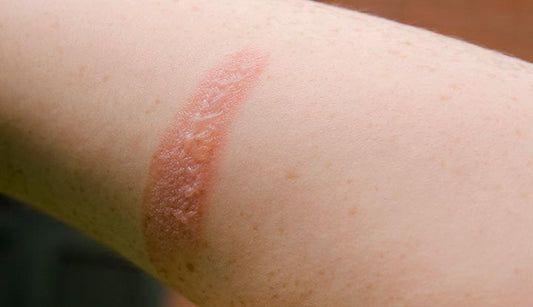How to improve the appearance of the skin with collagen creams for psoriasis
Psoriasis is a chronic skin disease that affects millions of people around the world. It is characterized by the appearance of red, scaly patches on the skin, which can be painful and uncomfortable. Although the exact cause of psoriasis is unknown, it is known that there are certain factors that can trigger the disease, such as stress, infections, and genetics. One of the ways to treat psoriasis is through the use of collagen creams. In this article, we will discuss what psoriasis is and how collagen creams can be helpful in treating this disease.
What is psoriasis?
Psoriasis is an autoimmune disease that affects the skin and joints. It is characterized by the appearance of red, scaly patches on the skin, which can be painful and uncomfortable. These patches can appear anywhere on the body, but are most common on the scalp, elbows, knees, and lower back. Although it is not known exactly what causes psoriasis, it is believed that a combination of genetic, environmental and immunological factors can trigger the disease.
symptoms of psoriasis
The symptoms of psoriasis can vary from person to person, but the most common include:
- Red, scaly patches on the skin
- Itchy and sore skin
- dry and cracked skin
- joint pain
- Thick and dimpled nails
- Red and hot skin
What is collagen?
Collagen is a protein found throughout the body, especially in the skin, bones, and connective tissues. It is an important part of the skin's structure, helping to keep it firm and elastic. As we age, collagen production slows, which can make skin less firm and more prone to wrinkles and other signs of aging.
How does collagen work in the skin?
Collagen is an important part of the skin's structure. Helps keep skin firm and elastic, which helps prevent wrinkles and other signs of aging. When applied topically, collagen can help hydrate and smooth the skin, and it can also help reduce inflammation and redness.
Collagen creams for psoriasis
Collagen creams can be useful in the treatment of psoriasis. These creams contain hydrolyzed collagen, which has been broken down into smaller molecules so they can be more easily absorbed into the skin. Hydrolyzed collagen can help hydrate and smooth the skin, and can also help reduce inflammation and associated redness. Additionally, some collagen creams may also contain other ingredients that may be helpful in treating psoriasis. For example, some creams may contain salicylic acid, which helps remove scales and reduces inflammation. Other creams may contain urea, which helps soften the skin and reduce itching.
It is important to note that collagen creams are not a cure for psoriasis, and they will not work for everyone. However, they can be helpful as part of a larger treatment plan, which may include diet changes, exercise, medications, and other topical treatments.
How to use collagen creams for psoriasis?
If you are considering using a collagen cream for psoriasis, it is important to talk to your doctor first. Your doctor can help you determine if this is a right treatment option for you, and can recommend a specific cream to suit your needs.
When using a collagen cream for psoriasis, be sure to follow the package directions and your doctor's instructions. Be sure to apply the cream only to the affected areas of the skin, and avoid applying it to healthy areas of the skin.
It's also important to note that some collagen creams can cause side effects, including redness, irritation, and itching. If you experience any of these side effects, talk to your doctor for advice.
Conclusion
Psoriasis is a chronic skin disease that can be painful and uncomfortable. Although there is no cure for psoriasis, there are several treatments that can help reduce symptoms and improve the quality of life for people with psoriasis. Collagen creams can be useful as part of a larger treatment plan, and can help hydrate and smooth the skin, and reduce inflammation and redness. However, it is important to talk to your doctor before using a collagen cream for psoriasis, and to make sure you follow the instructions carefully.
Frequent questions
-
Are collagen creams suitable for everyone with psoriasis? No, collagen creams are not suitable for everyone with psoriasis. It is important to talk to your doctor before using a collagen cream for psoriasis.
-
How do collagen creams work on the skin? Collagen creams can help hydrate and smooth the skin, and can also help reduce inflammation and redness.
-
Do collagen creams have side effects? Some collagen creams can cause side effects, such as redness, irritation, and itching. If you experience any of these side effects, talk to your doctor for advice.
-
Are collagen creams a cure for psoriasis? No, collagen creams are not a cure for psoriasis, but they can be helpful as part of a larger treatment plan.
- Can I apply the collagen cream anywhere on the body? No, you should apply the cream only to the affected areas of the skin, and avoid applying it to healthy areas of the skin.

























































































































